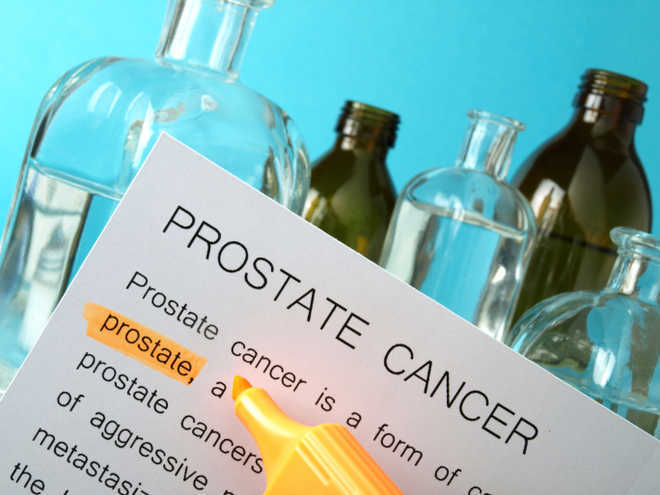New Delhi, February 5
Prostate cancer is extremely prevalent among asymptomatic men throughout the world. As per a report by the World Health Organisation (WHO), the incidence and mortality estimates per 100,000 age-normalised populations in India are nine and three, respectively.
Talking about the risk factors for prostate cancer, Dr Madhu YC, Senior Consultant, Surgical Oncology, BGS Gleneagles Global Hospitals, said, “Age is the most important risk for prostate cancer. Among adult malignancies, no other cancer is as age-related as prostate cancer. Prostate cancer rarely occurs before the age of 40, but the incidence rises rapidly thereafter.”
“African men have one of the highest incidences of prostate cancer in the world. Men with a brother or father diagnosed with prostate cancer at age 50 have approximately a twofold increased risk of prostate cancer and those with two or more first-degree relatives affected have approximately a seven- to eightfold increased risk compared with the general population,” he added.
The most common symptom of prostatic disease in men older than 50 is bladder outlet obstruction, including hesitancy, nocturia or increased urination frequency at night, urinary retention, and a diminished urinary stream. The diagnosis is established by a TRUS-guided transrectal needle biopsy, biopsy Gleason score, digital rectal examination and S.PSA levels.
Dr Madhu said the treatment of prostate cancer depended on the stage of the disease.
“Early prostate cancers (stage I and II) may be treated by either the surgical method of radical prostatectomy with pelvic lymph node dissection or radical radiotherapy. Locally advanced cancer can be treated by chemotherapy and radiotherapy.”
“If the cancer is in the metastatic phase, where it spreads to the other organs like bone, liver, and lungs, the treatment will be a combination of chemotherapy and hormonal therapy. LHRH agonist, abiraterone, Enzalutamide, oestrogens, ketoconazole and steroids along with supportive care must accompany treatment.”
Prostate cancer may be prevented by the following methods:
Hormonal Manipulation: Preclinical and clinical data suggest a potential role for finasteride in the chemoprevention of prostate cancer.
Antioxidants: Evidence from clinical trials suggests a promising role for selenium and vitamin E as potential chemo-preventive agents against prostate cancer, possibly through their antioxidant activity.
Early Detection/Screening: Periodic DREs and PSA testing play a major role in early detection of prostate cancer.




 Driving Naari Programme launched in Chandigarh
Driving Naari Programme launched in Chandigarh































